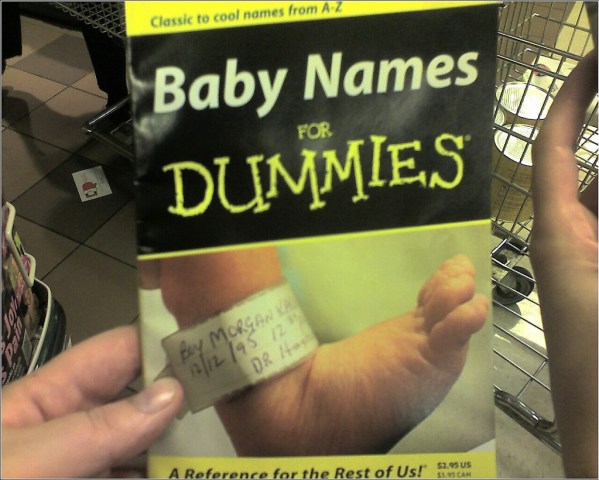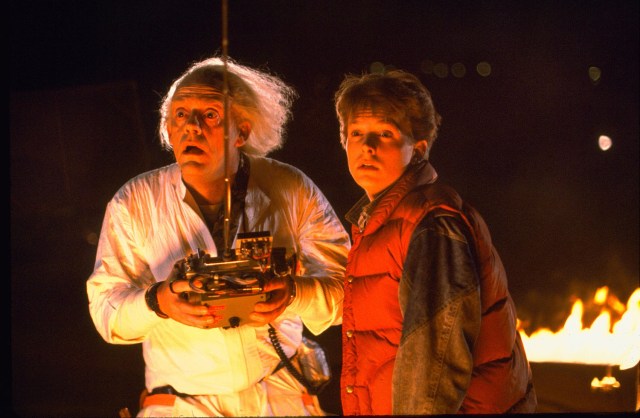12 Of The Weirdest Wikipedia Articles You Can Listen To
Jimmy Wales, was this what you had in mind?

Available audio versions of large texts can be very useful for blind and visually-impaired readers, which is why text-to-speech software is so popular. You know what, though? That’s not Wikipedia’s style. They’d rather get people to record themselves reciting articles about whatever they want — which makes for some strange subject material.
The Spoken Wikipedia Project, as it’s known, aims to “produce recordings of Wikipedia articles being read aloud” as a means of making Wikipedia articles available to those who are not able to read them — whether it’s because they can understand English but cannot read it, have an easier time concentrating on it, cannot actually see or just don’t want to be stuck behind a screen when there are physical activities to be done, like folding laundry or going for a jog. These spoken word audio files are also considered more authentic and accurate than those that a screen reader might provide a visually-impaired reader. Basically, it’s trying to be the LibriVox.org of Wikipedia.
While there’s definitely some merit to the project’s goals, there are definite flaws in the system. For one thing, a sizable number of the spoken-word articles we found are now out of date when held up to the current Wikipedia article of the same subject. For another, when people are left to their own devices, they will choose to record the weirdest, most esoteric collection of articles you can possibly imagine. You know, like “the Burundi Women’s national football team” or “the 1755 Lisbon Earthquake,” or perhaps “immortality.” Also, a lot of sex acts. So. Many. Sex acts.
All 1,291 files are currently available at the Spoken Wikipedia Project website, but we figured we’d round up a few of the best ones we’ve encountered to save you some trouble. So here we go, in alphabetical order:
1. All your base are belong to us

Remember when that was a thing? Relive those glorious Engrish-filled days of an Internet gone by with the soothing melodic tones of a random stranger. As a bonus, the narrator is British, which gives such an academic description Zero Wing‘s faulty translation that extra air of authenticity and sophistication.
2. Brfxxccxxmnpcccclllmmnprxvclmnckssqlbb11116

(image via alist)
It’s pronounced “Albin.” It’s also a weird name that made news when a Swedish couple tried to give it to their son in 1991 as a way to protest a weird naming law in Sweden. Which, okay, I get that certain laws are needlessly restrictive, but what would have happened if you’d overturned that law? Little Brfxxccxxmnpcccclllmmnprxvclmnckssqlbb11116 and all of his elementary school teachers would have hated you for the rest of your days. Anyway, listen to a guy try to spell the would-be name and be glad you weren’t born to such parents.
3. Buffalo buffalo Buffalo buffalo buffalo buffalo Buffalo buffalo

(image via Heather Bradley)
Quite possibly the most useful spoken-word article on the whole list for grammar nerds, as “Buffalo buffalo Buffalo buffalo buffalo buffalo Buffalo buffalo” is technically a correct sentence. Confused? The spoken word article actually lays it out pretty clearly. Also, he says the word “buffalo” about a spillion times, and it gets funnier with each iteration.

(image via Isaac Kohane)
Whale explosions aren’t exactly common, but it’s happened enough times that somebody took notice and complied a bunch of useful information about it.

It’s very easy to forget that Time Travel isn’t just an overused Doctor Who plot device and that it features prominently in some very serious discussions on the nature of existence and reality by science fiction writers, philosophers, theorists, and drunken nerds. That doesn’t stop us from thinking that the existence a 17-minute long explanation of the grandfather paradox is kind of odd, conceptually speaking.

(image John Keough)
Long words will never not be funny. If you can get through this 24-minute long audio file without laughing at least once, then congratulations, my friend. You have an iron will and the self control of Stannis Baratheon himself, which is to be applauded. Even if he is the brother of a horrible Targaryen usurper. Whatever.

Once you get about 4 minutes into the audio file, the article begins to describe the New Zealand political party’s rather unusual candidate selection methods and policy, and that’s when things really get fun. The words “free dung” are used. It’s a rollicking good time that sounds a bit like a Monty Python’s Flying Circus sketch. Specifically, the Election Night Special one about the “Silly Party” — which would, y’know, make sense.

(Image via Finn Frode)
The Wikipedia article is now just a redirect page for more specific types of microwave burns, but the original page dealt with all kinds of terrifying baby deaths and possible jawbreaker explosions. Its gruesomeness is all the more intensified by the narrator’s eerie calm.
9. Oral stimulation of nipples

I can’t decide which fact is more unsettling: that there was once an entire article about sucking on nipples, that someone saw fit to read it aloud, or that the latest version of the article (which has been amended to add all nipple stimulation, not just oral) is now just under 800 words long.
10. Rinderkennzeichnungs- und Rindfleischetikettierungsüberwachungsaufgabenübertragungsgesetz

(image via Michael Cannon)
This is the name of a 1999 German law that dealt with the supervision of the labeling of beef, because of course it was. Even weirder? This is the shorter version of the name.
11. Vanilla sex

(image via Ames Lai)
Not unsurprisingly, there was an abundance of spoken word articles dealing with various sexual practices (see above “oral stimulation of nipples”). But we were pretty surprised to see that somebody took the time to read the article for “vanilla sex” aloud, given that it’s so… well… boring. The article, I mean. Your milage may vary with regards to the sex.

(image via Dave Connor)
Whuppity Scoorie Day is a very small, oddly specific celebration in Lanark, Scotland, during which children run around churches to mark the beginning of spring and then scramble for coins being thrown at them by their elders. That’s doesn’t at all sound like the lamest video game premise ever. Yup, nothing to see here. Totally feckin’ normal, eh, Scotland?
(via Wikipedia; HT to Susana Polo of The Mary Sue)
- For those of us with shorter attention spans, there’s TL:DR Wikipedia
- 800 words worth of nipples, but we can’t take “holistics” seriously? (answer: no)
- PediaPress has a similar goal: they want to publish all of Wikipedia into books
Have a tip we should know? [email protected]